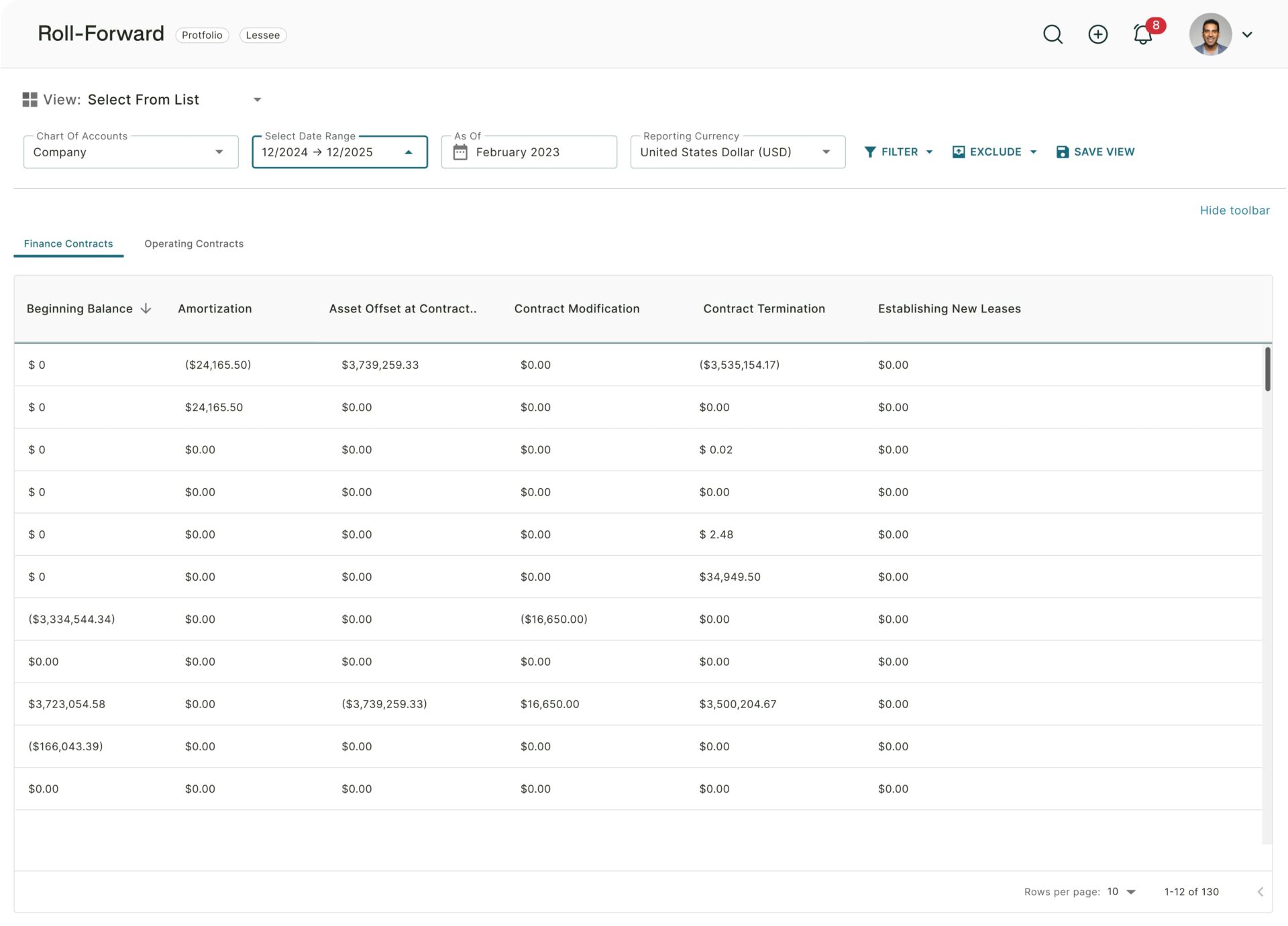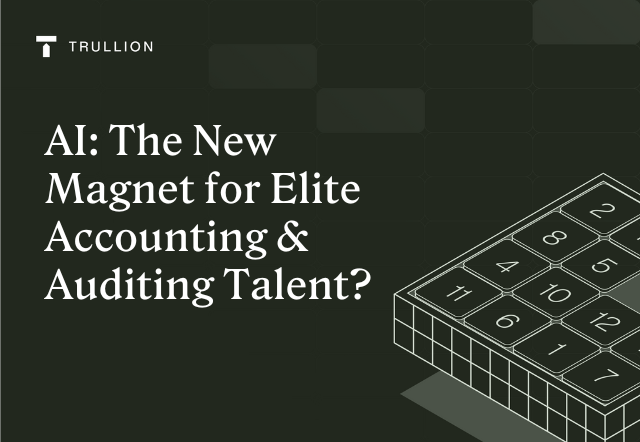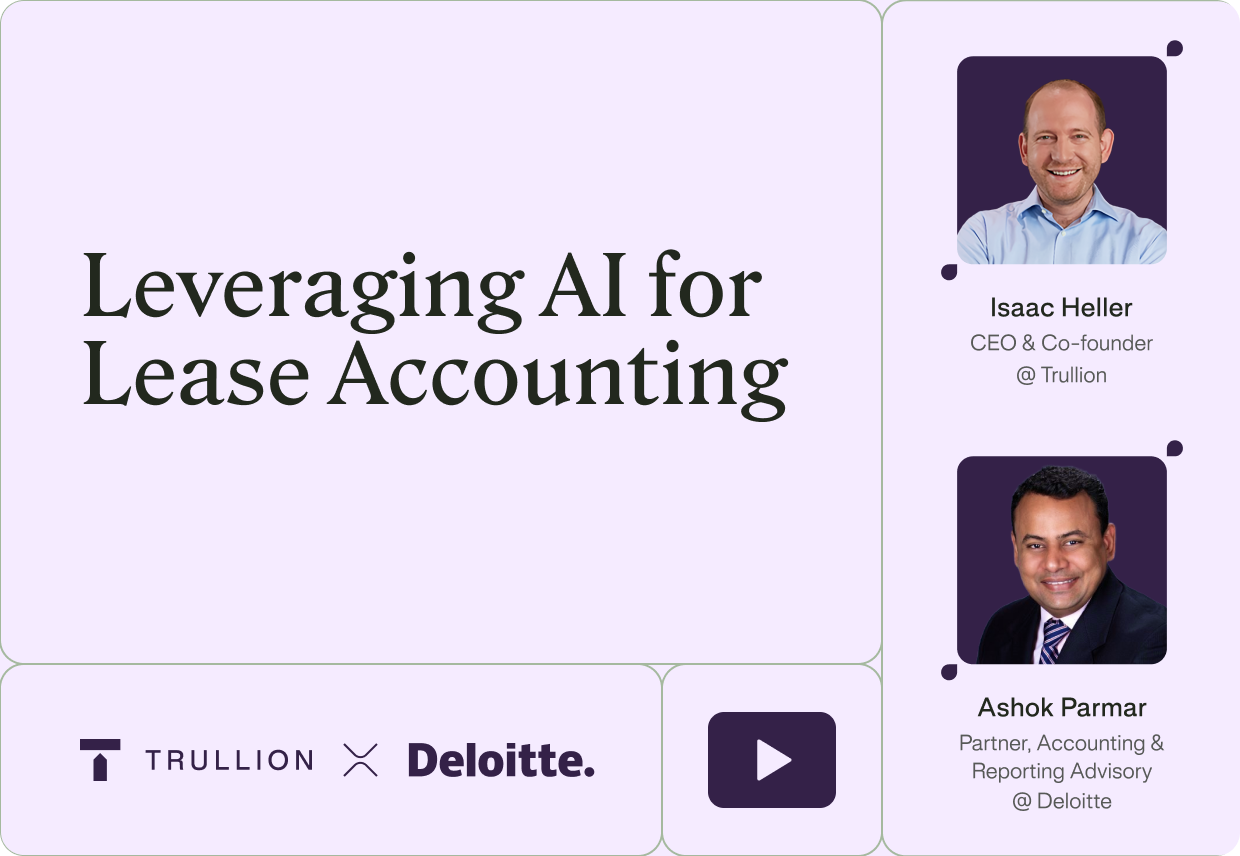Addressing the Talent Crunch
Accounting and auditing, as a profession, is failing to attract bright young talent. And the talent that does join does so in spite of – and not because of – the current state of this profession.
The Society for Human Resource Management notes that over 300,000 U.S. accountants and auditors left their jobs in the past two years and that there has been a 17% decline in the number of people employed in this field since 2019. The talent pipeline itself is drying up, too: there has been a 7.5% drop in the number of students graduating with an accounting degree.
The reasons given for this talent crunch are well-known: a high-stress environment, long hours, and the lack of a work/life balance, to name just a few.
Things aren’t looking great.
With the arrival of AI, there is a ray of hope: this technology could tackle the causes of the talent crunch head-on, heralding a bright new dawn for accounting and auditing.
The key is to leverage AI correctly to attract and retain top talent.
AI Innovations: Streamlining Accounting and Auditing
There have been a number of AI innovations that have transformed the way accounting and auditing are performed – and how potential entrants to the profession perceive the attractiveness of such a career.
Some examples and use cases of these innovations include:
Automated data entry: AI-powered tools can extract and process data from leases, invoices, receipts, and other financial documents, eliminating the need for manual data entry. These tools use optical character recognition (OCR) and natural language processing (NLP) to extract relevant information accurately and efficiently.
Robotic Process Automation (RPA): RPA software bots can automate repetitive tasks such as data reconciliation, report generation, and transaction processing. By mimicking human actions, RPA tools can streamline workflows, reduce errors, and free up accountants’ time for more value-added activities.
Advanced analytics and data visualization: AI enables accountants and auditors to analyze large volumes of financial data quickly. Advanced analytics tools can identify patterns, trends, and anomalies, helping in fraud detection, risk assessment, and performance analysis. Data visualization tools create interactive dashboards and reports, making it easier to communicate complex financial information effectively.
Predictive analytics: AI algorithms can analyze historical financial data – and any other data, including large amounts of unstructured data – to predict future outcomes and trends. This enables accountants to make more accurate forecasts and better-informed business decisions.
Natural Language Processing (NLP): NLP enables AI systems to understand and interpret human language. In the accounting and auditing industry, NLP-powered tools can analyze and extract information from unstructured data sources such as leases, revenue-related contracts, financial statements, and audit reports. They can assist in compliance monitoring, contract analysis, and regulatory reporting.
Anomaly detection: AI tools can detect patterns and anomalies in financial transactions to identify potentially fraudulent activities. These tools leverage machine learning algorithms to analyze data, flag suspicious transactions, and generate alerts for further investigation.
All of these innovations directly address the leading reasons why top talent avoids the industry: By automating some of the more repetitive (less rewarding) areas of work, AI is simultaneously unlocking bandwidth for creative, meaningful, and strategic contributions.
And it’s not only the technical aspect of the industry that’s being transformed by AI. There are several AI-powered tools that create more engaging work environments, boosting efficiency, aiding collaboration, and removing friction from professional daily life.
In an article entitled “AI for work relationships may be a great untapped opportunity,” Deloitte researchers show that AI can be a “powerful tool for the workforce to nurture uniquely human capabilities.”
The authors note that “While 91% of business leaders surveyed in 2022 said they have an enterprise-wide AI strategy, they are typically using AI in the workplace to generate insights, optimize processes, lower costs, improve collaboration across businesses…however, the potential of AI to improve human-to-human relationships among the workforce or with customers and potential recruits – what we call the social side of work – can often be overlooked.”
Upskilling and Reskilling: Preparing for the Future
In order to harness the full potential of AI, accounting and auditing professionals need to emphasize continuous learning and growth. An article from CIMA, “Skills that help accounting professionals succeed alongside AI,” notes that skills such as fundamental data skills, storytelling skills, and the ability to automate will be critical.
Other necessary skills include:
Keeping pace with technological advancements
AI is a rapidly evolving field, and new tools, techniques, and applications are being developed regularly. Continuous learning ensures that accountants and auditors stay updated with the latest advancements in AI technology. It allows them to understand the capabilities and limitations of AI tools, explore new possibilities, and adapt to emerging trends.
Acquiring AI-specific skills
Working with AI tools and technologies requires specific skills and knowledge. Continuous learning provides opportunities to acquire these skills through training programs, workshops, online courses, or certifications. By upskilling in AI-related areas such as data analytics, machine learning, and process automation, professionals can leverage AI effectively in their accounting and auditing work.
Embracing new roles and responsibilities
As noted previously, AI has the potential to automate routine tasks, freeing up time for accountants and auditors to take on more strategic responsibilities. Continuous learning helps professionals understand how AI impacts their roles now and in the future.
Enhancing problem-solving and critical thinking
AI tools can automate certain tasks, but they cannot replace human judgment and critical thinking. Continuous learning fosters the development of problem-solving and analytical skills, enabling professionals to leverage AI as a tool in their decision-making processes. It helps them understand the insights provided by AI systems, interpret the results, and make informed judgments based on contextual understanding.
Ethical and responsible use of AI
An increasingly important aspect of AI is the question of ethics in this field. Advances in AI bring ethical considerations, such as with regard to privacy, bias, and accountability. Continuous learning ensures that professionals are aware of the ethical implications of AI and understand how to mitigate risks.
Collaboration and Communication
AI often requires collaboration with different stakeholders, departments, and professionals. Continuous learning fosters collaboration between accounting and IT professionals, for example, or data scientists and other domain experts. It helps professionals develop the necessary communication skills to effectively collaborate with AI experts, explain accounting concepts to AI systems, and translate AI-generated insights into meaningful business recommendations
Organizations can attract and retain talent more effectively by implementing AI-oriented training programs. Successful strategies when implementing such programs have proven to be:
- Curriculum Design: develop a comprehensive curriculum that covers the fundamentals of AI and its applications in accounting and auditing. The curriculum should include both theoretical and practical components.
- Expert Instructors: recruit instructors who possess expertise in AI, accounting, and auditing. Consider partnering with industry professionals, academia, or AI consulting firms to access experienced instructors.
- Blended Learning Approach: implement a blended learning approach that combines different training methods, such as in-person workshops, online modules, webinars, and case studies.
- Practical Application: provide participants with opportunities to apply their knowledge and skills through practical exercises and real-world simulations. This can involve using AI tools and software commonly used in the accounting and auditing industry, analyzing real datasets, and solving AI-related challenges.
- Continuous Learning and Updates: AI is a rapidly evolving field, so it’s essential to emphasize the importance of continuous learning. Encourage participants to stay updated with the latest developments in AI and provide resources for ongoing education, such as webinars, conferences, and professional development opportunities.
Seize the AI Opportunity to Attract the Best
We started by noting that there is a definite talent crunch when it comes to accounting and auditing; and observed that AI, instead of being a force that reduces jobs in this profession, is likely to be the panacea so sorely needed to attract and retain the brightest talent.
To achieve this, accounting and auditing organizations – and individuals – need to invest in AI technologies, get comfortable with what AI can accomplish for them now and in the future, and incorporate AI as a central pillar of their strategy to secure top talent.
As accounting and auditing firms look to the next recruitment cycle, it may well be that those who succeed in attracting the very best talent will be those to adopt, and promote an AI-powered environment.










